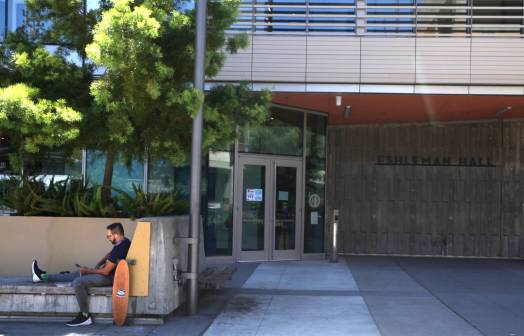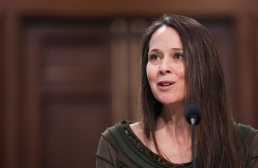ISTE’s updated computer science standards will reflect a ‘new era’ of the discipline
For the first time in six years, the International Society for Technology and Education (ISTE) is creating new computer science standards for educators. The document will reflect a “new era” in the way K-12 educators should think about teaching STEM and computer science, experts and coding advocates say.
The standards, which were last updated in 2012, will serve as “professional learning guidelines to help educators set goals for themselves,” according to the first draft of the new version.
ISTE officials aren’t thinking up the guidelines without help — Code.org and the Computer Science Teachers Association , among other groups, are collaborating with ISTE’s standards advisory board and technical working group to perfect the language and meaning, said Pat Yongpradit, the chief academic officer at Code.org.
“Computer science education hasn’t just changed, but been reborn, and these standards represent a new vision for computer science teaching,” Yongpradit told EdScoop. “First off, the idea that it goes beyond coding, and second, computer science teaching is not just for computer science educators, but a lot of educators who are incorporating computer science into their teaching as well.”
Yongpradit said that these standards represent an evolution in thinking about computer science education.
“No. 1,” he said, “that computer science education is much more than just coding or programming — it involves other aspects of academic discipline that include things like the social impacts of computing, data science, the general application of algorithms beyond traditional computer things — something we call computational thinking in general.”
The first two points in the first draft of the updated ISTE standards — which will remain open for stakeholder feedback until July — revolve around computational thinking, from the perspective of a “learner” and a “facilitator.”
A learner, according to the guidelines, must understand the hardware and software comprising a computer and its network, as well as the influence computing can have on the cultural and social wellbeing of individuals and a society. A facilitator, the guidelines stipulate, should choose relevant project- or problem solving-based lessons, encourage the use of computational thinking in those lessons and ensure those lessons are culturally diverse — a representation of thinking about computer science as more than just programming and coding.
The second point of evolution, Yongpradit said, reflects the spread of computer science initiatives throughout different classrooms — not just in computer labs.
“It’s not just computer science teachers who are teaching computer science,” he said, “but also educators from other subjects might be incorporating computer science.”
ISTE CEO Richard Culatta echoed the sentiments in a statement announcing the first draft of the standards.
“The ISTE Standards reflect a significant change — outlining the skills all educators need to prepare their students to be problem solvers and digital creators, no matter what they teach,” he said. “This is an important shift from the way we’ve thought of CS in the past, and the ISTE Standards for CSE will help guide teachers and empower students.”
The other four standards included in the draft also largely tackle nontechnical aspects of computer science education: creative design, collaboration between different disciplines, communication surrounding computer science and equity and inclusion within the field. The latter standard aims to cement a future in which computer science educators can instruct every child, regardless of their access to technology outside of the classroom.
“There are 31 states right now that have clear computer science certification pathways, and a number of those are looking at adopting or revising current computer science teaching standards,” Yongpradit said. “The 19 states that don’t have CS certification pathways will be looking at creating them for the first time using these standards as an input.”
Educators, district leaders and professional development organizations can offer suggestions and ideas about the current draft of the standards through the end of the month.




